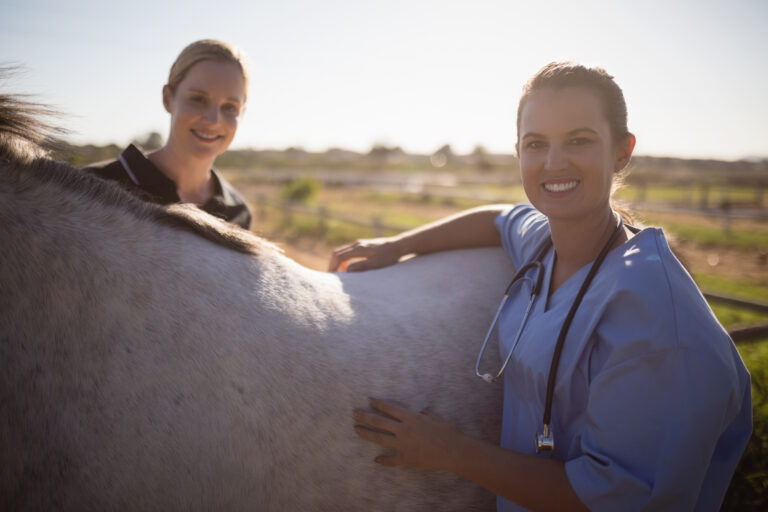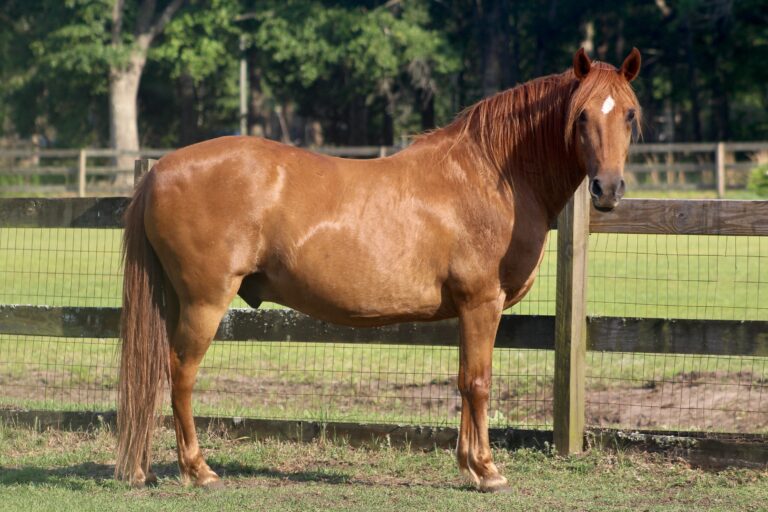
“Horses remain under serious threat within occupied areas of the Ukraine, with horrendous accounts of animals continuing to be maimed or killed, while grooms and carers risk their own lives by refusing to abandon them,” said David Rendle, BVSc, MVM, CertEM(IntMed), DipECEIM, MRCVS, president-elect of the British Equine Veterinary Association (BEVA).
Having returned from the Ukraine-Poland border earlier this week, Rendle delivered essential veterinary supplies from the UK, including antibiotics and pain-relieving medications. He also worked with British Equestrian and World Horse Welfare to help treat and to relocate horses from Ukraine. While there he received pictures and testimony of a number of attacks being carried out by Russian forces on stables in Bucha, Irpin and other equestrian premises north of Kyiv.
Ukraine vet Anatoly Levitsky, who is working in Kyiv, reported: “Not very big horse club was not far from Borodianka and owners were using their horses for hippotherapy of children with different pathologies. When war started, the lady who owned the stable and her child emigrated to Poland and her husband was conscripted into Ukrainian army. When Russian bandits in army uniform came to the village, they set fire to the stable and started shooting the horses that tried to escape.
“Some horses ran away, others were wounded, and some were burned down. After the building was burned, Russian soldiers went away and horses that escaped were wandering around the village and trying to find the feed. Step by step, people living in the village collected the horses and keep one or two horses in their yards.”
Rendle said, “It is hard to understand what could motivate anyone to perform these deliberate acts of cruelty. Random shootings, stabbings and burnings are widely reported and pictured on social media. We have no idea how many horses are dead and how many injured, but it has to be a significant number.
“Some of the lorry drivers I have met coming out have been shot at, shelled and beaten up, evacuating surviving horses,” Rendle continued. “They are taking risks that we would consider totally unacceptable to move animals out and supplies in. I have nothing but admiration for the bravery of the Ukrainian people.
“Ever conscious that there is an equal humanitarian need, you feel very small and rather cowardly that you aren’t permitted to go into Ukraine to help the people and animals that require treatment,” Rendle concluded.
The British Equine Veterinary Association and American Association of Equine Practitioners are working together to support veterinarians in Ukraine, but they are not permitted to provide direct, practical help.
There are dire shortages of medicines and materials in the areas where they are needed, and the collaboration is doing what it can to get veterinary and humanitarian supplies to the veterinarians they are in contact with.
They are working to establish safe stables in the West of Ukraine to get horses and their owners away from likely areas of combat in the East. Previously people have had no option but to turn horses into the woods prior to fleeing, or they have stayed to look after their animals despite the risks to themselves.
BEVA, in association with the British Equestrians for Ukraine Fund, is calling for urgent support to help fund veterinary treatment, supplies and the safe relocation of Ukraine’s endangered horses. To do this they need your urgent support.
To make a donation visit https://www.worldhorsewelfare.org/support-us/appeals/british-equestrians-for-ukraine-fund.
To find out more you can listen to a podcast from Dr. David Rendle here.
The full report from Ukraine veterinarian Anatoly Levitsky follows below
“You may find disaster in small towns which were occupied by Russian troops in Bucha, Gostomel, Borodianka, Irpin. These names of towns are known everywhere in Europe. We think about life of animals but we can’t compare suffering of animals with suffering of people who reside in these small towns. But still we deal with horses stables in these areas. You may find a lot of pictures in the internet with corpses of dead horses laying along the roads and destroyed and burned buildings, stables but I assure you suffering animals are far from these places.
“Not very big horse club was not far from Borodianka and owners were using their horses for hippotherapy of children with different pathologies. When war started, the lady who owned the stable and her child emigrated to Poland and her husband was conscripted into Ukrainian army. When Russian bandits in army uniform came to the village, they set fire to the stable and started shooting the horses that tried to escape.
“Some horses ran away, others were wounded, and some were burned down. After the building was burned, Russian soldiers went away and horses that escaped were wandering around the village and trying to find the feed. Step by step, people living in the village collected the horses and keep one or two horses in their yards.
“They reached out a young veterinary doctor, Zhenia Verbinets, and asked her to come to village and to heal a wounded horse. She conducted field operation, removed a lot of bullets from body of the animal. She obtained information that horses have nothing to eat. Next morning a truck with hay was sent to this village. Maybe this action will save lots of other animals.
“Now we control this situation and will be ready to send the food for the horses as soon as they need. The owner has called us and expressed his gratitude, but we are thankful to all people who keep with horses in their yards. Now we are at the stage when food for horses is more important than the medicine, but everything is connected. While I write letter to you, Zhenia Gorpinich is treating the horse with colic and of course needs medicines or even surgery.”
The following images were provided from BEVA and might be unsettling to some readers. Please take caution viewing them.







